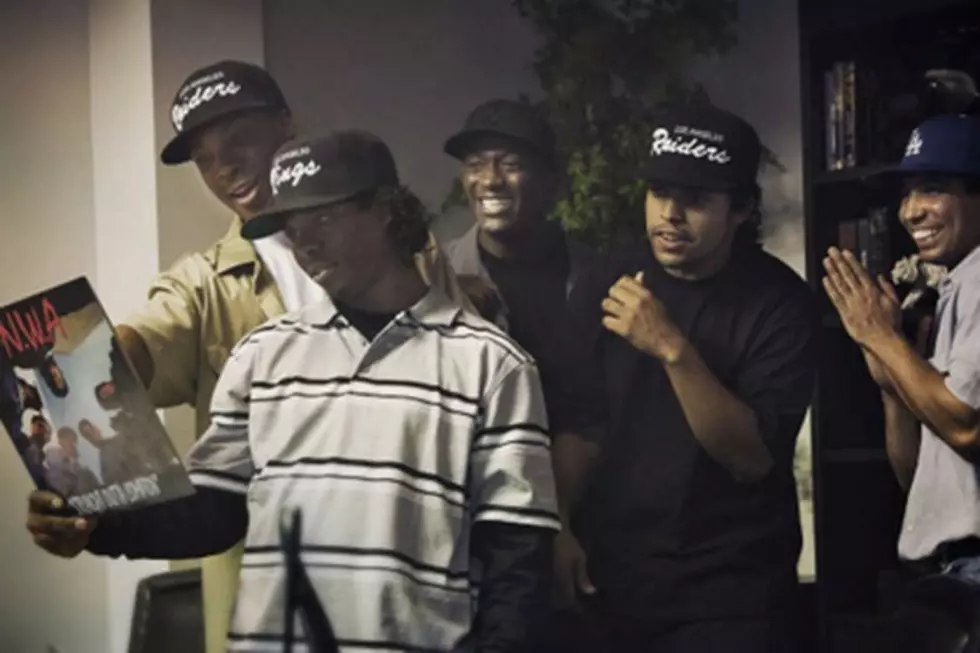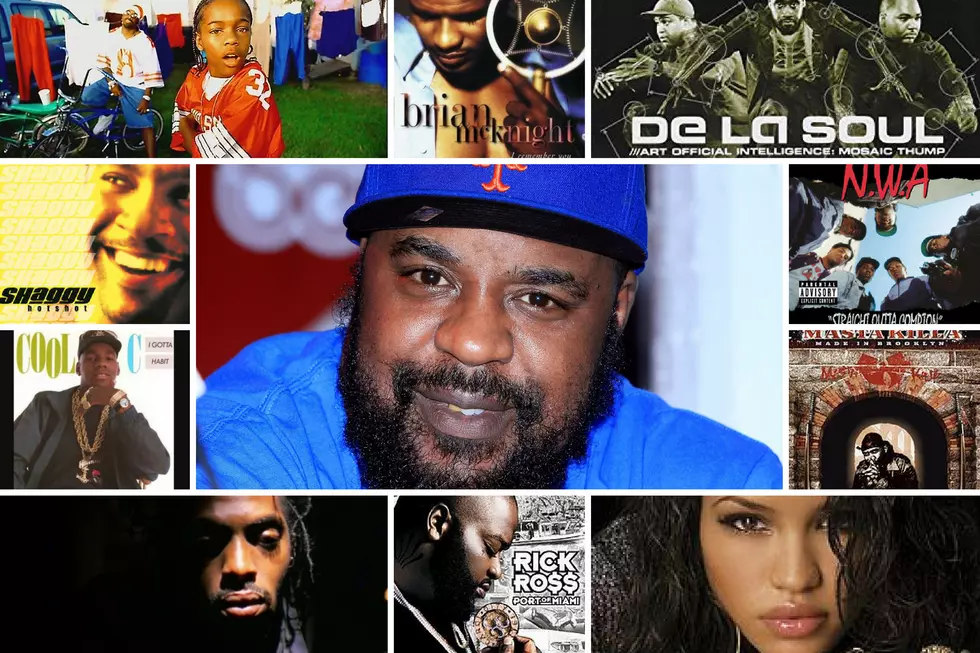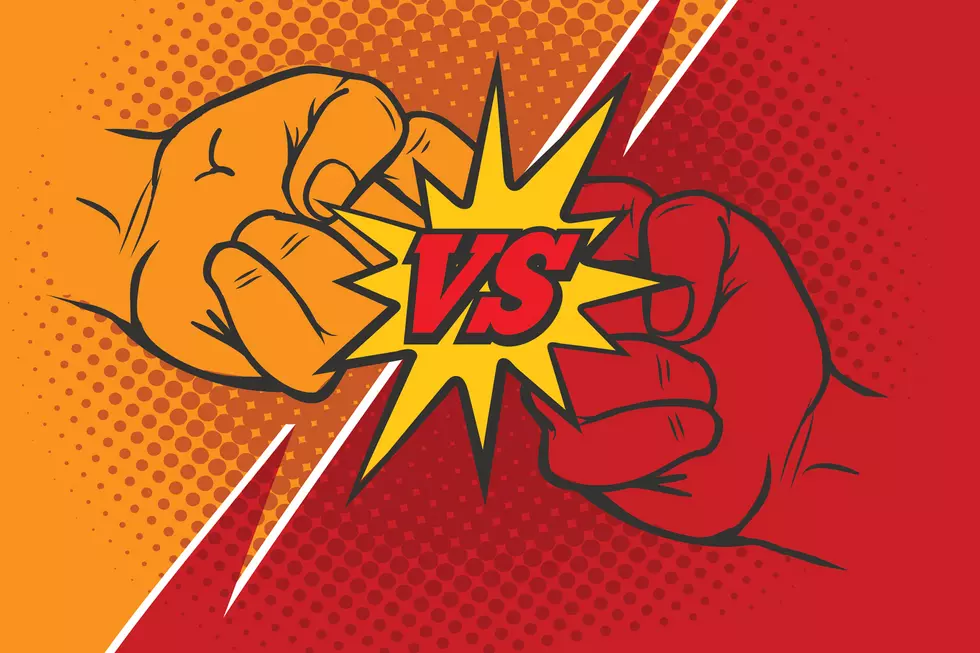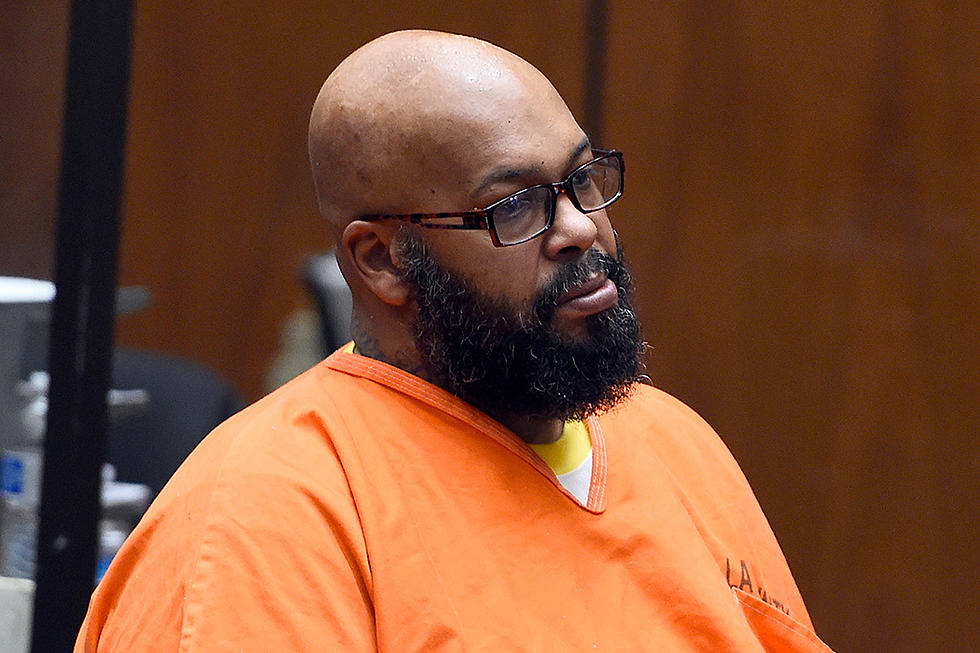
10 Things We Learned From the ‘Straight Outta Compton’ Movie
Everyone has a story to tell, but when you're "straight outta Compton," your testimony is so extreme it deserves a biopic. The long-awaited film surrounding the career of N.W.A., one of the music industry's most controversial groups, is finally here and it's a must-see.
More than 25 years have passed since Eric "Eazy-E" Wright, Andre "Dr. Dre" Young, O'Shea "Ice Cube" Jackson, Antoine "DJ Yella" Carraby and Lorenzo "MC Ren" Patterson released their ground-breaking LP, Straight Outta Compton, in 1988. The unapologetic album put the city of Compton on the map, and as a result, highlighted the climate of violence and police brutality not only in Los Angeles, but across the nation.
With Dre, Cube and the late Eazy-E's wife Tomica Woods-Wright serving as executive producers of the film, Straight Outta Compton is a visual reminder of how it all started. Lead by the direction of F. Gary Gray -- the man behind Ice Cube's Friday -- it begins with the foundation of the friendship between Dre (Corey Hawkins), a head-strong producer; Cube (O'Shea Jackson Jr.), a stone-cold lyricist; and Eazy-E (Jason Mitchell), the fearless street hustler with the funds to make all of their dreams come true. The three teens each have separate pivotal encounters with the LAPD, which seemingly fuels them to transition into what Cube once described as "street reporters," serving up "reality rap" by way of giving their oppressed city the voice it desperately needs.
The movie touches on everything from the rise and decline of N.W.A.'s relationship with former manager Jerry Heller (played by Paul Giamatti in the film), to E's battle with AIDS and Dre's detachment from Suge Knight. Thanks to the crafty editing of Billy Fox and Michael Tronick, it also highlights prolific, dark moments in Los Angeles history. Encounters with racist law enforcement inspired anthems like "F--- tha Police" and were just as crucial to the storyline as The D.O.C.'s support of N.W.A.
The inclusion of these factual cases serve as s a constant reminder that the iconic group's disdain for authority and distrust in the law can still be felt today. Ironically, the film will hit theaters just days after the one-year anniversary of the Ferguson riots and the death of Michael Brown, who was gunned down by police on Aug. 9, 2014.
Typically, when you hear the word biopic you think of a film outlining the life of a deceased legend. It's hard enough to tell the stories of the dead but creating a film based on facts provided by the living is even harder. But Straight Outta Compton was done right. But before you take our word for it or you check out the film for yourself when it hits theaters on Friday (Aug. 14), take a look at 10 Things We Learned From the Straight Outta Compton movie. Warning: this may be a spoiler alert, but then again, the film is so darn good we have a feeling you'll will want to go see it for yourself.
- 1
Rodney King Beating Hits Home
All five members of N.W.A. felt the wrath of the Los Angeles Police Department at an early age. "F--- the Police" was already a chart-topping anthem when in 1991 the LAPD was caught on camera severely beating Rodney King. As the world watched so did N.W.A. Eazy-E was the one who kept up with the case from the beating to watching the news report on the acquittal of the five officers responsible for the assault. The 1992 judgment immediately prompted the L.A. Riots and the resignation of LAPD Chief Darryl Gates. A scene of the protests and mayhem was included in the screenplay, mirroring what N.W.A. was rapping about years before. The atrocity in American history also prompted E to attempt to reconcile with Cube, who left the group in 1989 followed by Dre in 1992.
- 2
Women Are Given Power
For anyone who has heard N.W.A.'s music, it's no secret that women aren't placed in high regard with constant references to being "bitches" and "hoes." The gangsta rappers were viewed as misogynist womanizers who had no problem displaying their sentiments toward the opposite sex on tracks like "To Kill a Hooker," "One Less Bitch," "Findum, F---um & Flee" and "A Bitch Iz a Bitch." However, in an attempt to showcase women in a more positive light, the film centers on the respective women in Cube, Dre and E's lives. Cube's wife Kim Woodruff (Alexandra Shipp) is by his side when he leaves Priority Records and often sits in with him on important business meetings in support of him going solo. Meanwhile, Tomica (Carra Patterson) is the music executive assistant who goes over Eazy-E's contract with Jerry Heller and Ruthless Records and confirms Dre and Cube's suspicions that he was taken advantage of. The only real time we see a hint of their wild-boy antics is at the infamous 1990 Wet and Wild Party and a hotel romp, which includes a chuckle-worthy "Bye Felicia" moment.
- 3
Brotherhood Is Serious
Before he was known to the world as Dr. Dre, he lost his older brother Jerome to pneumonia. But in the movie, it's the death of his brother Tyree that has the most impact on his career and relationships. While on tour with N.W.A., Dre receives a late night "911" page (yes, to his beeper) from his mother. She tells him his younger brother Tyree was murdered after a tragic fight. Tyree and Dre were very close and this scene is certainly a tear-jerker. In another scene prior to his death, Tyree begs Dre to let him attend the tour stop in Miami, which the producer will only allow if he stays out of trouble. The news of his young brother's death finds Ren, Yella, Cube and E forming a brotherhood of support with Dre. They are his "brothers for life," according to Eazy-E. However years later, Dre has to remind E of those exact words when he presents him with his suspicions that Jerry Heller is stealing money from them and announces his departure from the group.
- 4
Arabian Prince and Warren G Are M.I.A.
For those who don't know, before MC Ren joined N.W.A., Arabian Prince was one of the original members. He lent his talents to N.W.A. classics like their debut single, “Panic Zone," proving he had a hand in the creative process. He departed from the group in 1988, before N.W.A.'s Straight Outta Compton album was released. Unfortunately, he doesn't get a starring role in the film and neither does Warren G, who is Dr. Dre's step-brother. The two would go on to collaborate together on Dre's The Chronic album, so it's interesting to see his role not included in the storyline compared to others.
- 5
Benedict Arnold Fights Back
When Eazy-E introduced Jerry Heller to the group, Ice Cube was skeptical about the fast-talking manager, whom he felt was swindling him out of finances -- Cube penned a majority of the tracks on Straight Outta Compton and E's solo debut, Eazy-Duz-It. Heller was the reason Cube left the group in late 1989. But in the eyes of the remaining members of Cube, he was a traitor. When the rapper released his debut solo album, AmeriKKKa's Most Wanted, he didn't call out N.W.A., but on the flipside, they attacked him on the diss track "Real N----z," referring to him as Benedict Arnold. Being the lyricist that he is, Cube responded with "No Vaseline." Lines like, "'Cause you're getting f---ed out your green by a white boy with no Vaseline," infuriate Jerry Heller in the film. Meanwhile, DJ Yella finds the whole thing hilarious. The diss led to physical altercations, like at the New Music Seminar, as a result of their bitter feud.
- 6
The D.O.C. Changed Dre's Life
Although the Dallas, Texas rhymer D.O.C. (Marlon Yates Jr.) was an unofficial member of N.W.A., helping to pen a slew of their hits, his role in the film was life-changing for Dre. Recovering from a near-fatal car crash, which left his larynx crushed and threatened his potential rap career, D.O.C.'s condition in the hospital put things into perspective for Dre and revealed a major turning point in his career. While visiting D.O.C. on his hospital bed, Suge Knight approaches Dre about his contract with Ruthless Records and challenges him to truly assess his deal. Notably, Suge reminds Dre he could very well be in D.O.C's place, without help from Eazy-E or Heller and his voice potentially lost forever. With that, Dre parts ways with Eazy-E, Ruthless and more importantly, Heller, to start Death Row Records alongside Knight.
- 7
Ice Cube's Son Is Stellar
While Ice Cube may have felt his son, O'Shea Jr., was "born to play" his role, casting directors initially disagreed. However, young Cube's dedication to acting finally earned him the honor of playing his father. Clearly the mic doesn't fall far from the stand as the 24-year-old fully embodied his father's persona. At times, his acting was so on point, especially in the live performance scenes, it was hard to differentiate the spawn of Cube from the real life star.
- 8
Jerry Heller Is Ruthless
Eazy-E didn't call it Ruthless Records for nothing. While he was the face of the label with his cunning, yet cutthroat persona, behind the scenes his manager, Jerry Heller, had a similar business mentality. Despite denying claims of financial theft, in the film, Heller is portrayed as the opposite of innocent. He was not only responsible for introducing N.W.A. to mainstream media and their national success, but he also attributed to the group's downfall. The biopic shows him taking advantage of the young, far from business savvy rhymers, who had no concept of legal jargon or contracts early on in their career. Heller continuously played on Eazy-E's braggadocio and arrogance, pitting him against Cube. Although Cube and Dre severed ties with Ruthless on account of their issues Heller years later, it took E more time before he finally cut him loose. The good thing is that letting his longtime manager go meant the reconciliation of the members of N.W.A.
- 9
Black Is the Best
Before Jay Z was wearing "all-black everything" in the "Run This Town" video, Eazy-E was making waves in hip-hop with his team of black all-stars. The head of Ruthless Records asked the group to wear all black while performing onstage at their first show because they were "all-stars." The outfits mainly consisted of black shirts, pants and hats that were decorated with Oakland Raiders and Dodgers logos. When DJ Yella shows up wearing a bright yellow and blue jersey, E was angry because his partner-in-rhyme was ruining his vision. As a supergroup from the mean streets of Compton, E was adamant about making a statement even when it came to their fashion choices.
- 10
Dee Barnes Gets No Love
One major moment in N.W.A.'s history that was omitted from the film is Dr. Dre's infamous 1991 assault on Fox TV's Pump It Up host Dee Barnes. The rapper reportedly ran up on the journalist at an industry event just a few months after her interview with rival Ice Cube aired. According to Barnes, the producer picked her up and "began slamming her face and the right side of her body repeatedly against a wall near the stairway." Dre claimed the altercation was exaggerated and that he merely pushed Barnes through a door. DJ Ren and Eazy-E stood behind Dre's actions, claiming Barnes deserved it. Charges were filed against the The Chronic rhymer but he settled a civil dispute with Barnes out of court in 1993.
- Bonus
See 25 Historic N.W.A. Moments
[gallery galleryid="625:179529" showthumbs="no" enablefullscreen="yes"]
- Bonus
10 Things You May Not Know About 'Straight Outta Compton'
More From TheBoombox









